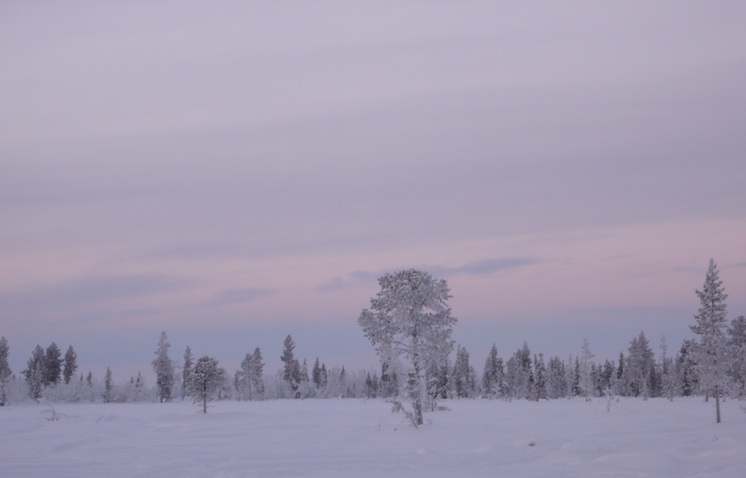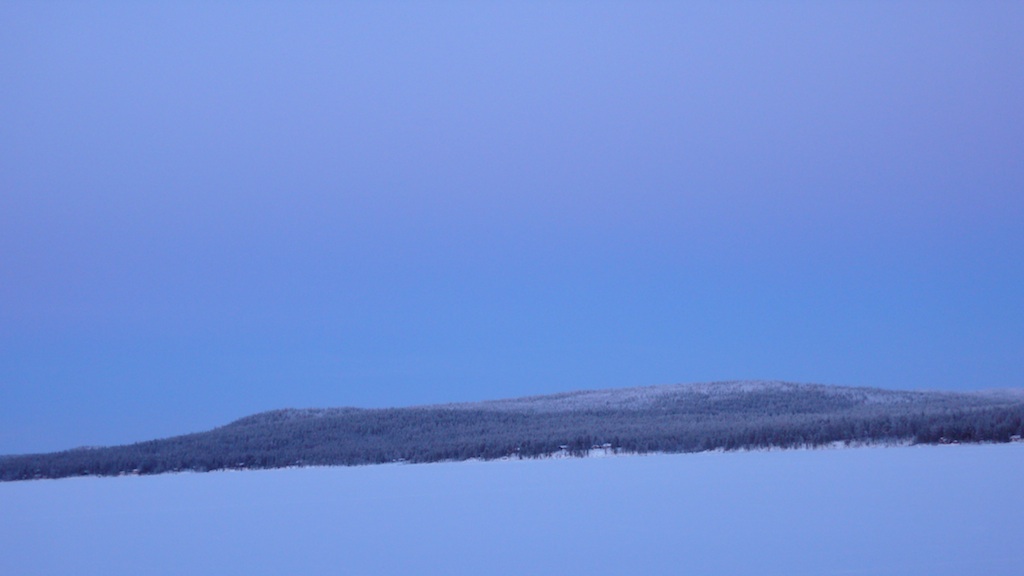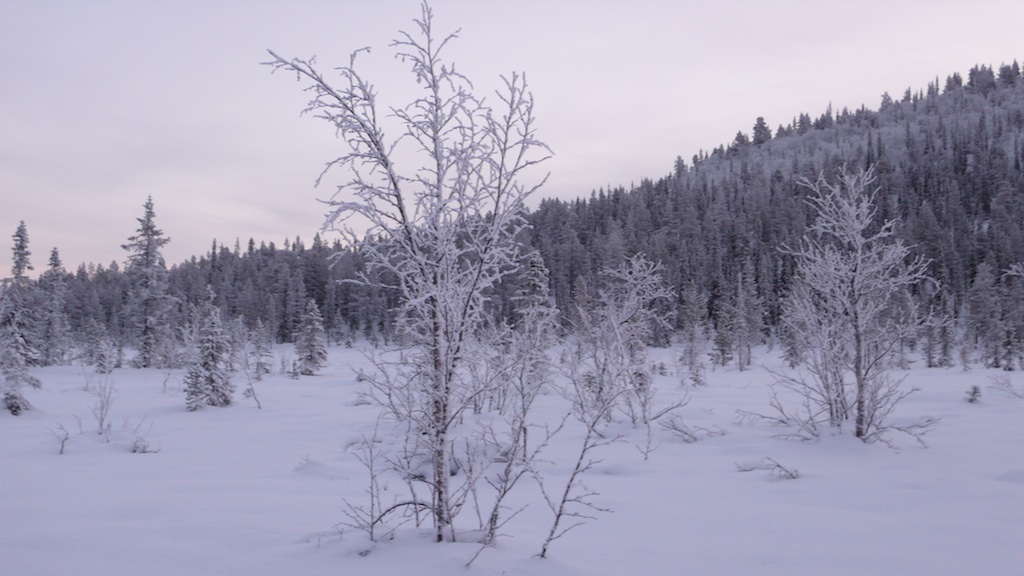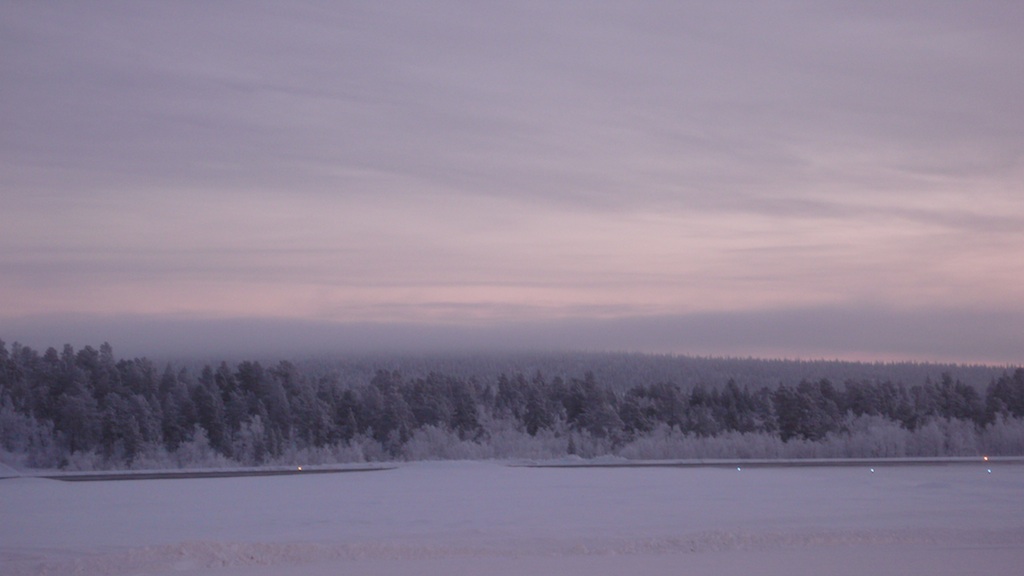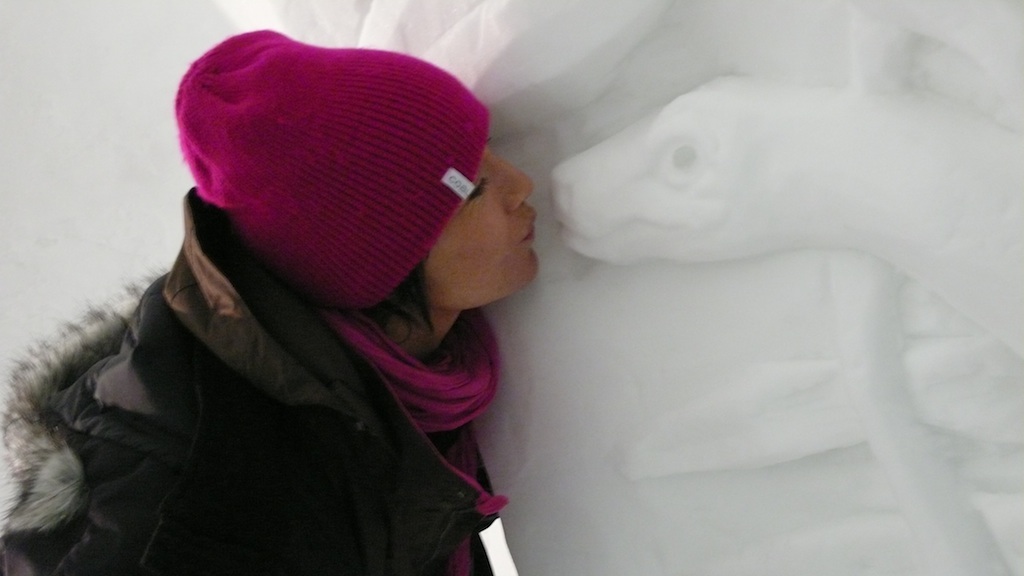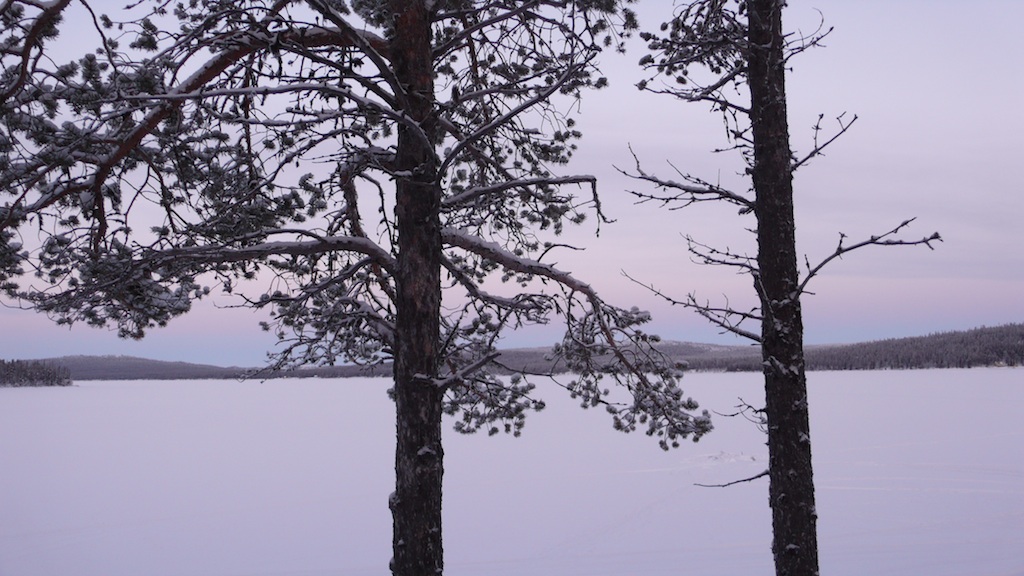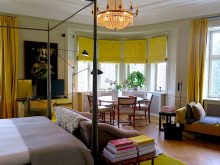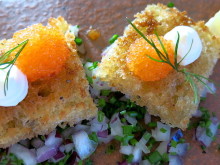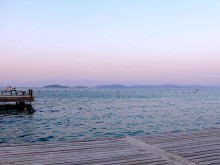It was just after noon and the sun was setting. Seventy-two dogs bayed in the gloaming, as the horizon glowed a frosty blue. Everything was snow. We were nearly one hundred miles north of the Arctic Circle where the temperature was minus fifteen degrees Celsius – and we were heading deeper into the tundra: to the IceHotel.
Most of us were urban dwellers, more accustomed to sirens and car alarms than to the sound of dogs panting as the musher urged them onward, through the snow and over the frozen Torne River. A brief safety demonstration had left us with the fear of losing a foot beneath the sled’s runners – or worse, being left behind in the vast expanse of endless white. Hold tight to each other, we’d been instructed. We were three to a dogsled, with one musher – and a twelve-dog team racing us across a winter wonderland.
A Winter White World Before Homo Sapiens
It was cold, freezing cold, no question about it – and we’d arrived in Kiruna, Sweden, after an overnight, transatlantic flight. From the plane, we’d looked down on topography that seemed otherworldly: a completely white winter world as it existed before the arrival of homo sapiens. And now we were in that white world, racing across the frozen river, cutting through the snowbanks and up and over hills – and soon, if this went on much longer, we’d start losing our extremities to frostbite.
Mercifully, halfway to IceHotel, deep in the wintry woods, there was a wilderness camp. Or rather a small octagonal wooden structure, the center of which was given over to a wood-burning stove. We crowded inside and sat on reindeer skins. There was hot lingonberry juice and reindeer stew (and vegetable stew for those of us who like Rudolph). Rarely has food tasted so delicious. More hot lingonberry juice, please.
But we were only halfway home – and so out into the daynight we returned, where the dogs bayed and cried, waiting to take us to our destination. Over the river and through the woods – to IceHotel. In the distance, we could make out a chimerical glow, a wintry mirage against the horizon. This was why we’d traveled nearly four thousand miles to the land of the Northern Lights, to Lapland, to Jukkasjärvi, home of IceHotel.
From a Small Igloo to Nearly 60,000 Square Feet
Now celebrating its 21st year, IceHotel has, in its twenty years, expanded from a small igloo to the world’s largest ice and snow hotel, with this year’s version encompassing nearly 60,000 square feet. Each year, commencing in March, when the Torne River is still frozen, the crystal-clear ice is harvested and stored until the following autumn for that year’s version of IceHotel, which is built by artisans, artists, sculptors, and craftspeople from around the world. By now, much of the world has heard about IceHotel, thanks, in part, to the involvement of Absolut Vodka (who did an ad campaign photographed by Herb Ritts with Naomi and Kate at IceHotel) and other corporate and marketing sponsors. There are seasonal Absolut IceBars in cities as far and wide as Stockholm, London, Tokyo, and Copenhagen – and all of them built with the fabled crystal-clear ice of the Torne River.
And you’ve more than likely heard the wonderfully jazzy and cool Stacey Kent and Kazuro Ishiguro collaboration, “The Ice Hotel,” with its sultry bossa nova vibe. Each year, more than 60,000 visitors stay at IceHotel – before its current incarnation melts back into the Torne River.
Sleeping on a Block of Ice
And yet, no matter what you’ve heard or read, nothing truly prepares you for the reality of IceHotel. Not until you step off the dogsled and through the reindeer-skin covered front doors can you truly appreciate how far you’ve traveled – and how very glad you are that you made the trip.
There’s no question that a trek to IceHotel is transformative, both for its transcendent physical landscape, but also for its potential for mental clarity. At first, you’re likely to be cowed by the prospect of sleeping on a block of ice covered by reindeer skins at a temperature of minus five below zero Celsius. And yet, IceHotel has had twenty years to fine-tune every detail – and as soon as you’re on the premises, you’re in good hands. These are people who know the cold and the snow – and virtues of both – and they are happy to instruct you in how to handle, and thrive in, such extreme environments.
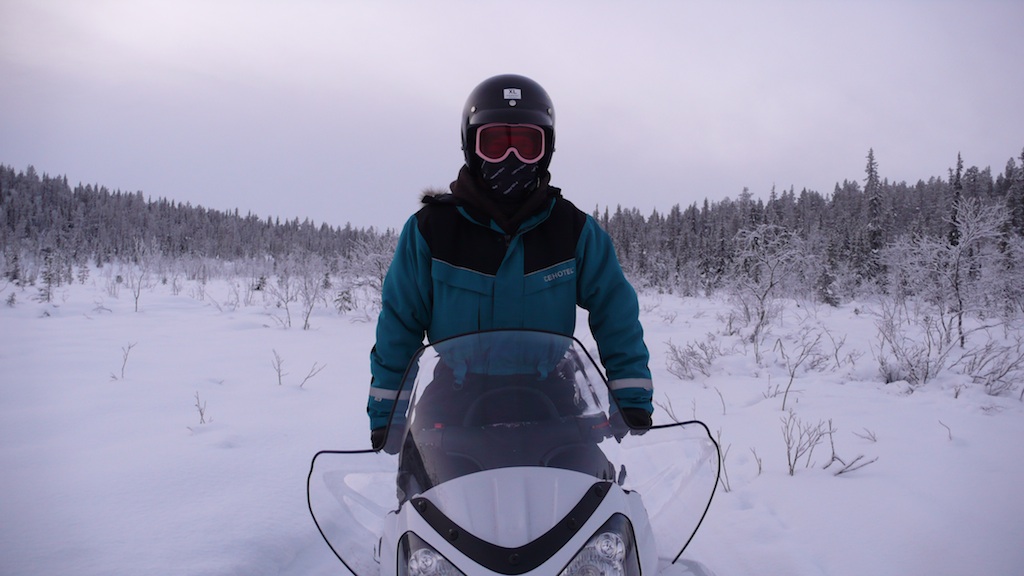
(Source: MRNY)
Warm Accommodations: Nordic Hotel Chalets
There’s a sauna, for example. A sauna as deluxe as a Japanese establishment in Hokkaido. And a restaurant serving such gastronomic pleasures (on plates of ice cut from the Torne River), locally sourced, that you can hardly believe you’re dining at the North Pole. And apart from IceHotel, there are warm accommodations such as the Nordic hotel chalets, with two separate bedrooms, and the Northern light hotel chalet, with skylights for viewing the aurora borealis – for, as a rule, most patrons of IceHotel spend one night in the cold accommodations, and then a second and third in the warm accommodations.
As for us, we were also witnesses to a wedding, a wedding of two young American men, winners of VisitSweden’s “Love Is In The Air” contest – and the two grooms were feted and wined and dined, not only in the air by the incredibly warm and hospitable SAS (Scandinavian Airlines) flight crew, but also at IceHotel, where the happy couple arrived by reindeer sled. With a female priest officiating in a stunning full-length white fur cape, the two youths were married in the Great Hall of IceHotel, exchanging wedding rings made by Swedish jeweler, Efva Attling – and even in the sub-zero cold, there was hardly a dry eye in the house.
Childlike Wonder
Apart from dogsledding and wilderness camps, there are also snowmobile treks through the woods, and an introduction to Sami culture, the indigenous people of Lapland, and ice sculpting. Or if you’re more comfortable fireside, there’s a second restaurant called Old Homestead, and another lounge that serves until one am – just in time for you to venture back out and gaze into the sky.
In spite of the cold, the feeling that you’re most likely to experience at IceHotel is wonder. The kind of childlike wonder that you might recall when you first witnessed snowfall at night – and no matter how your mother cajoled, you weren’t coming in to bed, not until you’d covered the entire lawn with snow angels.
Head to the IceHotel and experience the wonder.
LINK: IceHotel
GETTING THERE:
SAS Airlines flies direct to Stockholm from New York’s JFK with a crew that is both professional and fun-loving (on a recent flight from Stockholm to JFK, the entire SAS crew serenaded the newlywed LGBT winners of the “Love Is In the Air” sweepstakes with their own version of “I Am What I Am,” while also dispensing wedding cake). (For photos from the Love Flight, visit www.sasgroup.net )
SAS Business Class is truly deluxe, with a self-massaging bed/chair, and cabin bathrooms complete with windows (!!!) as well as fresh flowers and linens, but even SAS Economy Extra is an exceptional way to fly to or fro Stockholm, including the requisite comfort kit, full meals, plush duvets, and plenty of leg and arm space. Best of all, the SAS crew wants you to fly happy (and recently went so far as to secure a vegetarian meal for someone who’d forgotten to order ahead…).
SAS flights from Stockholm to Kiruna are approximately ninety minutes. From Kiruna to IceHotel is about six miles by car – and about two hours by dogsled.
LINK: SAS Airlines
ADDITIONAL INFORMATION:

